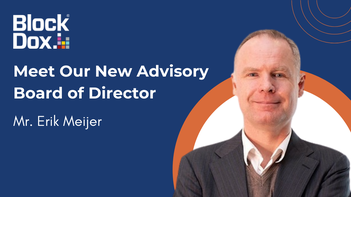Environmental, social and corporate governance (ESG) were an important item on last year's COP26 agenda where world leaders have, at last, stressed its urgency. With guidelines for businesses set to ensure net-zero emissions are achieved by 2050, it seems that we’ve all committed to living on a better planet.
ESG as it relates to buildings is an increasingly important part of facilities management, with investors more inclined to invest in sustainable buildings than traditional ones. Although the term is entering our everyday language, there’s still a lot of confusion around ESG in the built environment, especially when it comes to implementing it and, most importantly reporting on it. However, this need not be the case! This colossal endeavor can be achievable when armed with the right tools.
In this article we explain why ESG matters in facilities management and we stress the importance of data in speeding up your reporting while saving you energy as well as reducing your carbon footprint at the same time.
2) Why does ESG matter?
ESG matters for numerous reasons; curb the impact of climate change on the planet as well as keep air pollution and its effect on our health under control. One of the biggest culprits behind climate change is the built environment, contributing 40% of carbon emissions every single year. Reducing buildings’ energy wastage is crucial if we want to reach net-zero emissions by 2035. Putting climate change to the back burner is not an option anymore; we should all come together to provide a better planet for generations to come.
For employers, the perks of having a sustainable office are endless: from savings on energy bills to attracting and retaining top talents, implementing an ESG-focused strategy, will undoubtedly, contribute to demonstrating positive leadership.
Moreover, investors have started to set the standards for what will be a mandatory feature of current and future buildings. It has been said that certifications such as LEED and BREAM are now becoming more than just nice-to-haves, they're must-haves. A recent study has shown that these accreditations were sought after by investors partly because they increase the value of their real estate and rental profitability by 12%. Therefore, neglecting ESG-ratings or green accreditations will come at a high cost.
However, for building and facilities managers, one question remains: how do I simplify the ESG reporting procedure and make data-driven decisions when appropriate?
3) The value of Data in ESG
Facilities and building managers are conscious that their building’s ESG rating could impact their reputation if not adequate. Adopting a data-driven approach is the only way to reach your ESG/sustainability targets, without it you’d just be flying blind.
ESG cannot be achievable without the right data at the right time. Data not only lets you take action in real-time, it also enables you to accurately measure your building’s performance against pre-set targets, ensuring your building’s on track to become ESG-rated.
Data and technology allow you to get to a level of granularity never seen before. You can use historical data captured to identify patterns or energy wastage, helping you make reasonable building management decisions.
Moreover, the COVID-19 pandemic has brought to the fore issues related to hygiene and health. Through the use of data, IoT sensors and indoor air quality indexes, you can ensure that your spaces comply with ESG’s health and safety standards while reducing your carbon footprint.
\ At BlockDox we understand that achieving net-zero is a priority and we want to support you in attaining this goal.
We help you with:
- Achieving wellbeing in any space
- Control your indoor air quality
- Save up to 56% on your energy bills
- ESG planning
- Covid-proofing your spaces
- Reducing costs
- Wellbeing strategies













